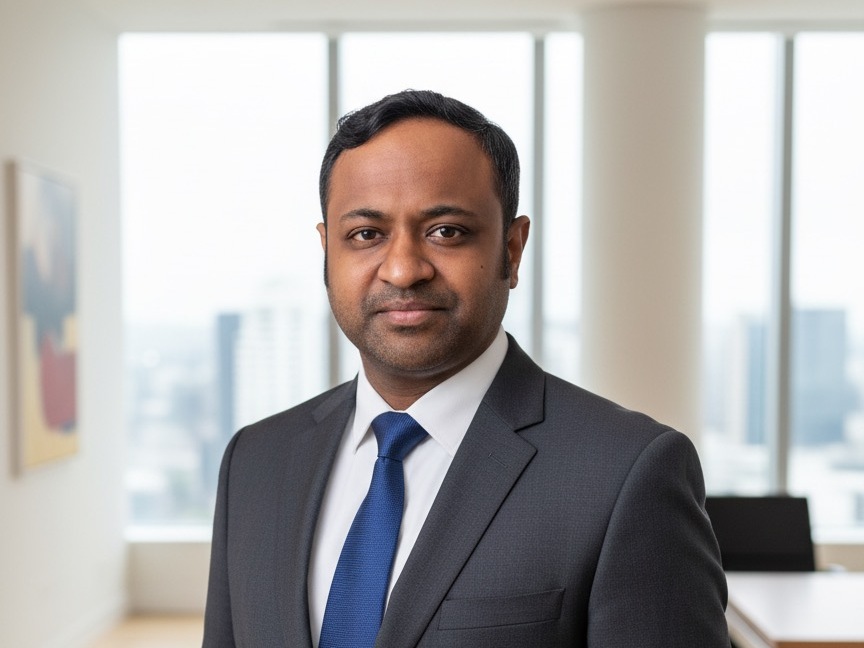This interview has been published by Anshi Mudgal and The SuperLawyer Team
With over 15 years in the legal services industry, what initially drew you to this field, and how has your journey from initial years evolved to leading practice at your current company shaped your professional outlook?
From my childhood, law was almost a family tradition. My grandfather, my father, and my uncle were all lawyers. Growing up surrounded by legal discussions and a home office full of clients made it natural for me to follow that path. I never doubted that I would become a lawyer. On the way I adapted a bit and embraced tech along with solving legal issues for my clients.
You completed your LL.B from India and an LL.M from the University of Leicester. How did studying law in both India and the UK shape your perspective, and what aspects of each system have influenced your approach to legal practice?
After my LL.B in India from Madhusudan Law College at Cuttack, I wanted to broaden my horizons. I first considered Australia, but a friend encouraged me to go to the University of Leicester. It turned out to be the best decision. I immersed myself in arbitration, met amazing mentors like Camilla Anderson and Martin Hunter, and gained an international perspective that I still have with me. I spent a lot of time studying and preparing for the vis moot competition at Vienna, although I don’t regret it a bit, but I wish I had networked more and built more contacts. I advise youngsters who reach out to me before embarking on their masters journey to spend more and more time networking with people and building those meaningful relationships. I wish someone would have told me this. While you won’t realize the power of networking in your 20s, it will certainly come to your aid in your 40s when you are in a leadership role and your friends are all leaders at various organizations across the globe.
Having worked across diverse industries telecom, technology, automobile, and banking what common industry specific challenges do clients face in contract management and eDiscovery, and how do you navigate these challenges?
As a legal services professional our role is always industry agnostic but in all the major industries like telecom, tech, banking, and automotive, clients often struggle with large amounts of data. This is where we become a bridge between law and tech. I use technology to simplify that complexity. It’s about making things clear and efficient so they can focus on their business rather than the legal maze. My other area of focus has always been on Contracts Lifecycle Management and I see a lot of clients across industries struggling to manage their contracts. I have developed a deep expertise in Contracts Lifecycle Management (CLM) helping clients streamline their contracts by creating standard playbooks, doing industry benchmarks and helping them with preferred and fallback positions.
Your international experience spans the US, UK, Canada, and Southeast Asia. How have differences in culture, legal frameworks, and business practices across these regions influenced the way you manage cross-country teams and navigate work in diverse jurisdictions?
Working in the US, UK, Canada, and Southeast Asia taught me that while legal frameworks differ, people and culture drive action. The US focuses on clients and results. The UK puts importance on governance and structure. Canada mixes process with teamwork, while Southeast Asia values relationships. Managing teams across countries means adjusting communication styles, decision-making processes, and delivery methods. For instance, I find a balance between being efficient and respecting hierarchical norms in Asia. These experiences improved my ability to switch between frameworks, honor cultural differences, and still achieve globally consistent results. This skill is essential when handling matters in multiple jurisdictions.
As Director of Forensic and Financial Crime, you lead operations, client management, and business development. How do you balance the strategic aspects of growing the practice with the day-to-day demands of execution, and what does a typical day in your role look like?
My role is really about balancing two worlds including driving the growth of the practice and delivering for clients. On any given day, I might be working on market strategy in the morning and then jumping into a client call by the afternoon and taking a Global call in the evening. The key is prioritization and making sure the team feels empowered so both sides run effectively. By God’s grace, I’ve been fortunate to be part of some very large, even unicorn-level matters in both eDiscovery and CLM, and I’ve navigated the deep lanes of execution along the way. But what truly shaped me was the shift into strategy and that only comes with experience and tenure. I’ve learned that being perfect at one thing will take you far, but to move further you need to embrace imperfection, broaden your scope, and take risks. One of my mentors once told me, you are not an avenger, you will not get a single chance to save the world, you are a common man, make sure you do small things and do them well every single day. This has remained with and has shaped how I look at leadership and growth.
You’ve been at the forefront of integrating technology, including GenAI-powered review solutions and accelerators, into legal processes. What role do you see technology playing in reshaping contract lifecycle management and eDiscovery over the next few years?
For me, technology isn’t just a tool anymore, it’s central to how we provide legal services. With NavigAite ( a GenAI tool developed by my team), for example, I’ve seen how GenAI can change reviews by making it faster, more accurate, and easier for clients. It goes beyond just spotting PII or privilege. It helps teams build facts, create timelines, and make decisions with confidence. In CLM, GenAI is taking away the tedious tasks of clause extraction and risk checks. This allows people to concentrate on negotiation and strategy. I often tell clients that the real change is moving from tools that support to platforms that actively guide outcomes. What excites me the most is seeing teams that were once doubtful now asking for more demos. They can feel the difference. That’s when you know technology is changing how we work. It is a matter of time that embracing tech will no more be an option, it would become a necessity for survival.
Having handled high-stakes matters such as global outsourcing contracts and multi-jurisdictional cases, what has been your most challenging project so far, and how do you navigate the pressures that come with such complex work?
Interestingly, my most challenging project wasn’t a large one; it was a 4 day long review which literally decimated my brain into pieces. The client was pushing us hard, and we had to adapt every few hours. It taught me that change management is crucial in our field. If you can handle constant shifts, you can handle anything. Handling changes while balancing risks is key to our profession and someone who masters this, is poised for success. Sometimes you will be in a situation where you feel “that’s it, I am done” but remember everything changes and it changes for good, just hang in there and have some patience.
For young professionals aspiring to build a career at the intersection of law, technology, and project management, what skills and mindset should they prioritize to succeed in today’s globalized legal services environment?
For those aiming to work at the intersection of law, technology, and project management, building a diverse skill set is key. Legal knowledge is essential, but being comfortable with technology is also important, especially in AI, contract tools, and data analytics. Strong project management and client engagement skills set good professionals apart from great ones. In terms of mindset, curiosity, adaptability, and resilience are must-haves. The industry is changing quickly, so the ability to learn, unlearn, and relearn is crucial. I often advise young professionals to focus not only on technical skills but also on understanding the business side, knowing how legal solutions contribute to business results. I follow this 80 and 20 rule where in your early years 80% is your subject matter knowledge and 20% is your soft skills, but if you don’t focus on the 20% early in your career, it will be extremely difficult to adapt when you move into senior levels where the 80 becomes 20 and the 20 becomes 80. Soft skills are equally important to hone along with other aspects. Focus on listening, drafting business emails, elevators pitch, speaking with confidence and being persuasive at an early stage.
With all the responsibilities at work, how do you balance your personal life with it? What activities do you undertake to maintain work life balance?
Balancing work and personal life in our industry is never easy, but I’ve found it comes down to being fully present where I’m needed. With my son, I make it a point to be there during his taekwondo sessions; with my wife, I support her creative journey; and when it’s time to work, I give it my all. For me, work-life balance doesn’t mean shutting off at 6 PM or ignoring calls on weekends, it’s about knowing when to prioritize work and when to prioritize family. I’m also a foodie, and that keeps me energized. I’m always looking forward to the next meal, where I’ll eat, and who I’ll share it with. It sounds simple, but it gives me daily motivation. The same applies to vacations, I always apply for my next one right after I return. Having something to look forward to, whether it’s a meal or a trip, keeps me positive, focused, and more diligent in my work.
get in touch with Ritesh Kumar Mohanty –




